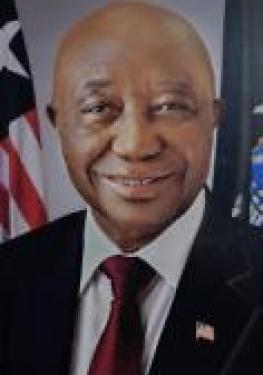Liberia has undertaken numerous initiatives to address environmental issues. Despite those initiatives, Liberia continues to face important challenges to meeting environmental goals. Liberia is struggling to fulfill many of the objectives set forth in the Rio Conventions. Many of the developed frameworks and plans for action face limited implementation due to limited government resources, limited human capacity, and a lack of appropriate technologies. Liberia struggles with an inadequate system for information and knowledge management and the poor information sharing between or within sectors. Additionally, the country’s degraded and limited infrastructure combined with a low technical and institutional capacity severely limit Liberia’s environmental governance framework and thus its potential to conserve the natural environment, let alone secure long-term benefits from it.
Leading to the formulation of the Rio Convention mainstreaming project, a National Capacity Self-Assessment (NCSA) was undertaken through a consultative process and participatory approach that involved numerous stakeholders from various sectors in 2006 to establish empirical cause(s) leading to Liberia struggle to fulfill many of the objectives set forth in the Rio Conventions especially information sharing and coordination. The NCSA identified the following barriers that cut across the three Rio Conventions as reasons for the struggle: Inadequate public awareness and education/training, inadequate access to information, Lack of institutional capacities, and Lack of effective mechanism for information processing and sharing.
Between 2010 and 2012, UNEP implemented a global project, entitled Piloting Integrated Processes and Approaches to Facilitate National Reporting to Rio Conventions that included Liberia as a beneficiary country. This project focused on helping Liberia (among other countries) to better organize modalities for accessing and preparing their national reports. Notwithstanding the capacities developed, a number of important capacities remained to be developed, such as the standardization of data collection and information analysis, improved coordination and collaboration to facilitate streamlined national reporting, and increased awareness and stakeholder engagement in the national reporting process.
In 2019, the CCCD project established an integrated knowledge management system that focuses on collecting, storing and sharing information and data between the institutions for better environmental management and the fulfillment of the obligations of the Rio Conventions. To use the new technological innovation for environmental data collection, storing and sharing, the CCCD Project has conducted two learning–by-doing trainings in 2019 and 2020 respectively of fifteen (15) line ministries and agencies’ information technologists. Additional software (plugins) is being procured to be installed for the enhancement of the functionality of the EKMS. To further strengthen the capacities of the Environmental Knowledge Management Officers and Knowledge Brokers at the line ministries and agencies and NGOs on the use of the EKMS a rehearsal learning –by-doing training is imperative.
The Environment Knowledge Management System platforms is a multi-year cross sectoral engagements that supports coordination and collaboration among Government staff, research centers, think tanks, practitioners, and private firms in tackling global environmental challenges.
Please see details:



